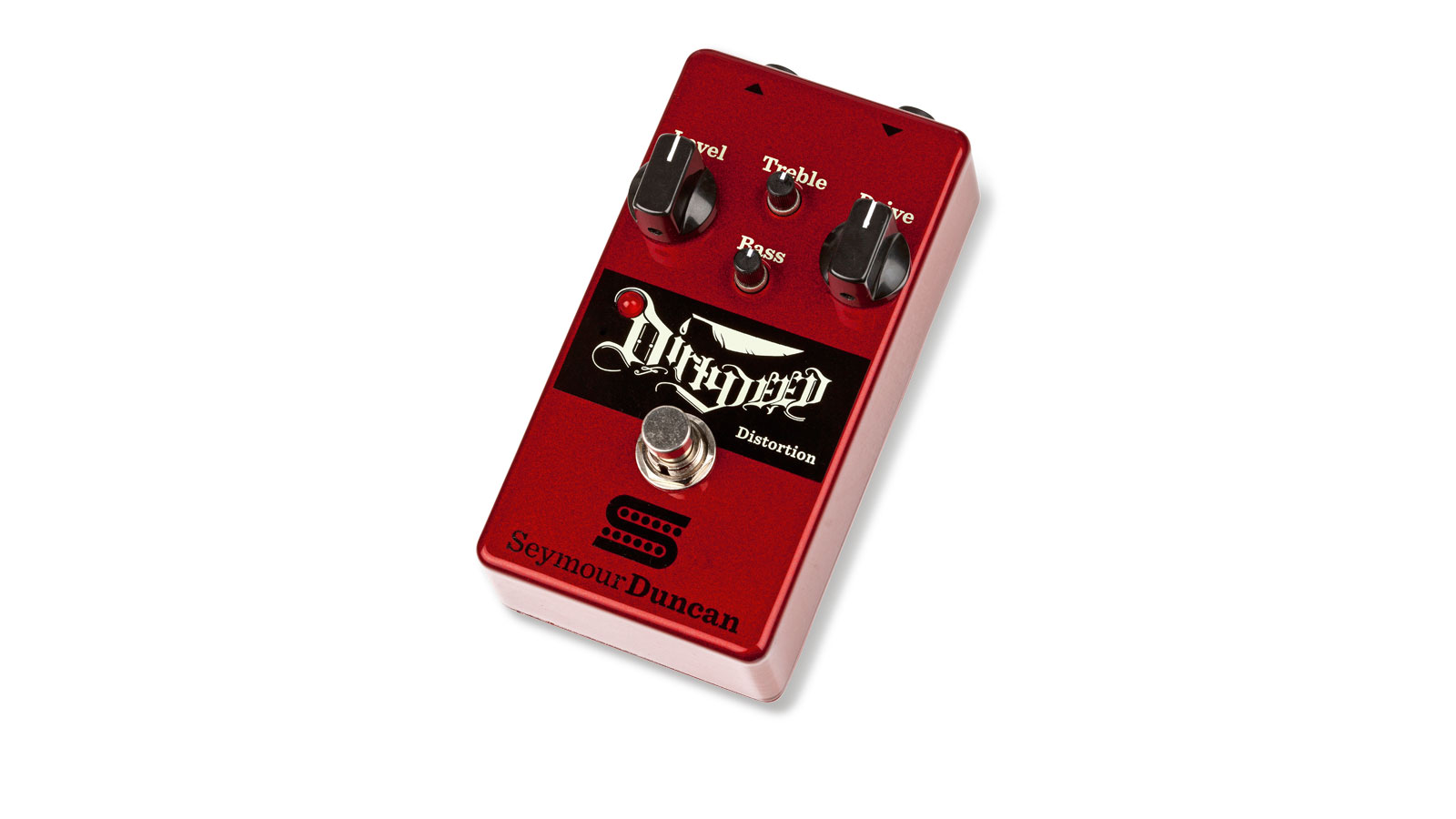MusicRadar Verdict
In this case, dirty deeds ain't done cheap, and more versatile drives are available, but for amp-like, balls-to-the-wall distortion, the DDD is worth plugging in.
Pros
- +
Sounds brilliant into a clean valve amp. Active EQ controls. Never fizzes out.
Cons
- -
Not much.
MusicRadar's got your back
As well as its legendary pickups, Seymour Duncan is forging a name in FX, too. The Dirty Deed Distortion is part of its latest compact range, and, as you might expect, deals with the filthier side of gain.
"We've tried plenty of distortion pedals over the years, but the DDD ranks among our favourites"
The DDD falls on the classic-rock side of distortion, with a presence and mid kick aimed at the stage. It boasts full-bodied gain at any drive level, courtesy of a circuit based around MOSFET transistors, which feature a dynamic response similar to a cranked amp.
That keeps the higher-gain sounds clear for liquid legato lines, and ensures they clean up with your volume knob for lighter crunches.
Although SD reckons the DDD is also great for boosting already-distorted amps, we preferred running it into a clean valve amp - if you're using humbuckers, you'll struggle to get low-gain sounds from the pedal on its lowest drive setting, and this can mean an overly saturated tone when combined with amp gain.
The treble and bass controls' active EQ helps to maintain the distortion's clarity, though, with up to 12dB of cut or boost for beefing up single coils or brightening 'buckers.
We've tried plenty of distortion pedals over the years, but the DDD ranks among our favourites: it's full of gain, low-noise and never fizzy.
Want all the hottest music and gear news, reviews, deals, features and more, direct to your inbox? Sign up here.
Mike is Editor-in-Chief of GuitarWorld.com, in addition to being an offset fiend and recovering pedal addict. He has a master's degree in journalism, and has spent the past decade writing and editing for guitar publications including MusicRadar, Total Guitar and Guitarist, as well as a decade-and-a-half performing in bands of variable genre (and quality). In his free time, you'll find him making progressive instrumental rock under the nom de plume Maebe.

